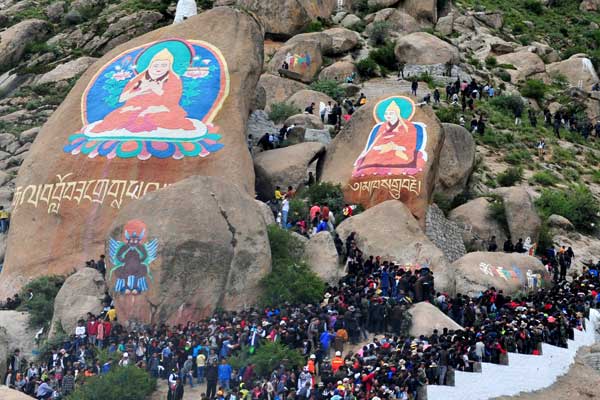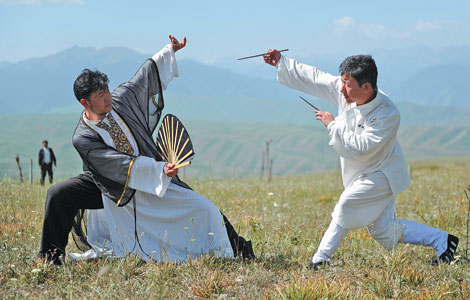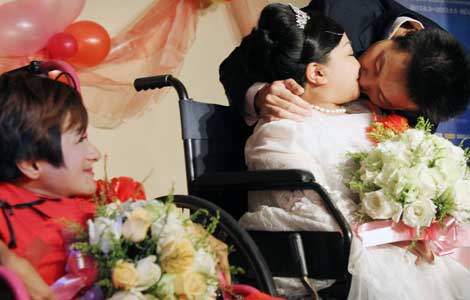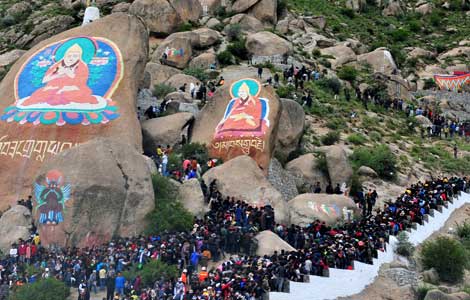Yogurt festival marked in Lhasa
Updated: 2013-08-07 02:07
By Palden Nyima in Lhasa (China Daily)
|
||||||||
Thousands of people celebrated the unrolling of the thangka — a giant religious silk embroidery — to kick off the start of the Lhasa Yogurt Festival on Tuesday.
Accompanied by the sound of horns reverberating through the valley, monks slowly unrolled the thangka on the mountainside behind the Drepung Monastary in the capital of the Tibet autonomous region at about 8 am.
 |
|
Giant thangka, religious silk embroideries and paintings, on the mountains behind Drepung Monastery in Lhasa, capital of the Tibet autonomous region, attract thousands of people on Tuesday to mark the traditional Shoton Festival.[Photo by Li Zhou / For China Daily] |
"I have seen thangka in Qinghai before. But I was still totally shocked when I saw such a giant thangka today," said Cui Lingrui, a student from Nanjing University.
Both tourists and locals woke early, and some even stayed up through the night to visit or worship here, said a monk who declined to give his name.
Restaurant owner Nyima Butri closed her business on Tuesday to take part in the festivities.
"I got up at 4 am this morning and I arrived here around 6 am by walking," she said. "In order to have good luck, we all wear new clothes on this hopeful day."
One of the most popular in Tibet, the seven-day festival, also called the Shoton Festival, is celebrated annually in August, or the sixth or seventh month of the Tibetan calendar.
The festival dates back to the 17th century as a religious occasion in which residents offered yogurt to monks who had finished their meditation retreats, said Tashi Palden, the deputy editor-in-chief of Tibet Daily.
With the theme of "Happy Lhasa, Beautiful Home", this year's festival will include events such as Tibetan opera, Buddha photo and Tibetan mask exhibitions, and long-distance hikes, according to the city government.
"Traditional Tibetan culture is magnificent in my eyes," said Wang Tianlu, a Hindi translator from China International Television. "I adore such traditional culture from the bottom of my heart."
Most Viewed
Editor's Picks

|

|

|

|

|

|
Today's Top News
Air force can help combat crowded skies, experts say
China sets no timetable for family planning update
Japan's new warship draws fire
Snowden obtains formal registration
Maiden flight in holding pattern
Small firms should also think global
NBA courts Sina Corp
Govt to court private capital
US Weekly

|

|












